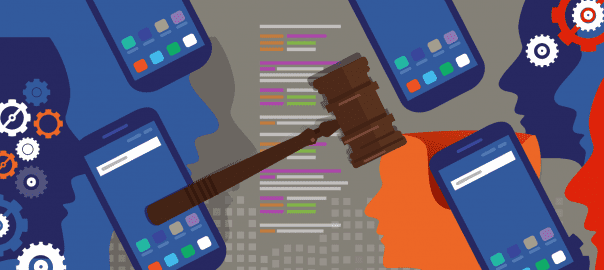Aug.31, 2023 /Internet/ — Moderators could be liable to lawsuits if they fail to protect privacy and data protection. The European Union’s Digital Services Act (DSA) aims to create a safer online environment for users by holding online platforms more accountable for the content they host. Under the DSA, moderators will be required to take steps to remove illegal content, such as hate speech and child sexual abuse material, from their platforms more quickly. They will also be required to be more transparent about how they moderate content and to give users more control over their data. Continue reading
Category Archives: Internet
The end of Twitter – how Elon Musk’s rebrand to X could foster the platform’s dark side
Leslie Hallam, Lancaster University
Alas, poor Twitter; we knew it well. Or, at least, we thought we did. Despite never occupying more than 10% of social media’s online presence, western audiences are very aware of the platform. That’s not least because of the way that the mass media echoes and amplifies the controversies and outrage born on Twitter.
Opera announces that its native browser AI integration surpasses 1 million users
Opera Limited (NASDAQ: OPRA), one of the world’s major browser developers and a leading internet consumer brand, today announced that Opera’s native browser AI, has reached over 1,000,000 users since recently becoming available to the users of the Opera Browser for Android and Opera Browser for desktop. Continue reading
How scammers use psychology to create some of the most convincing internet cons – and what to watch out for
Stacey Wood, Scripps College and Yaniv Hanoch, University of Southampton
Online fraud is today’s most common crime. Victims are often told they are foolish for falling for it, but fraudsters use psychological mechanisms to infiltrate the defences of their targets, regardless of how intelligent they are.
So it’s important to keep up with the latest scams and understand how they work.
Shipping today: Opera One, first browser with native AI is ready for download
Opera One, the latest incarnation of the Opera browser, is out of testing and ready for download. What would have been the 100th version of Opera now marks the beginning of a new evolution cycle for the Norwegian browser company’s flagship product. Continue reading
Dstillery Introduces Custom Search Lookalikes, A First-of-its-Kind Application of Search Keywords for Programmatic Advertising
Dstillery, the leading custom audience solutions company, today announced a new addition to its portfolio of targeting products. Unlike anything else on the market, Dstillery’s Custom Search Lookalikes uses patented AI and opted-in, de-identified panel data to bring the power of search to programmatic advertising in a new, innovative way. For the first time, brands and their agencies will be able to integrate their programmatic ad campaigns with search engine marketing by leveraging the keywords that drive performance. Continue reading
Bluesky will enable AI to interact with humans in a social way.
28 April 2023 /Internet/– Bluesky is an open-source, decentralized social media protocol being developed by a team of engineers and designers led by Jay Graber. The project was announced in 2019 by Jack Dorsey, the co-founder and former CEO of Twitter, who is also a founding member of Bluesky.
Bluesky is a Web 3 project. Web 3 is the next generation of the internet, built on blockchain technology. It is designed to be more decentralized, secure, and transparent than the current web. Continue reading
The art of crafting and building keywords in an “AI Prompt” effectively
Generating high-quality content for businesses, websites, and other uses is critical. However, creating engaging and effective content is a time-consuming and challenging task to accomplish. The use of keywords in Artificial Intelligence prompting (AI Prompting) has the potential to improve productivity and creativity by assisting in the content authoring or generation process.
Continue reading
Opera unveils Opera One, an entirely redesigned browser
Opera is unveiling Opera One today. Opera One is the early access version of a completely redesigned browser that is planned to replace the flagship Opera browser for Windows, MacOS, and Linux later this year. Based on Modular Design, Opera One transforms the way you interact with your browser, delivering a liquid navigation experience which is more intuitive to the user. With today’s release, Opera One also becomes the first major Chromium-based browser with a multithreaded compositor that brings the UI to life like never before. Opera One also introduces Tab Islands, a new, more intuitive way of interacting with and managing multiple tabs. This news from the company comes just weeks after announcing its first generative AI features, including AI Prompts, as well as access to ChatGPT and ChatSonic in the sidebar. Continue reading
The Metaverse will get a big boost from AI
April 21, 2023 /Technology/ –The metaverse is a virtual world where people can interact with each other and with digital objects. It is still in its early stages, but it has the potential to revolutionize the way we live, work, and play.
AI can play a major role in the development of the metaverse. It can be used to create more realistic and immersive experiences, to provide personalized content and services, and to automate tasks.
Here are some specific ways that AI can boost the metaverse: Continue reading










